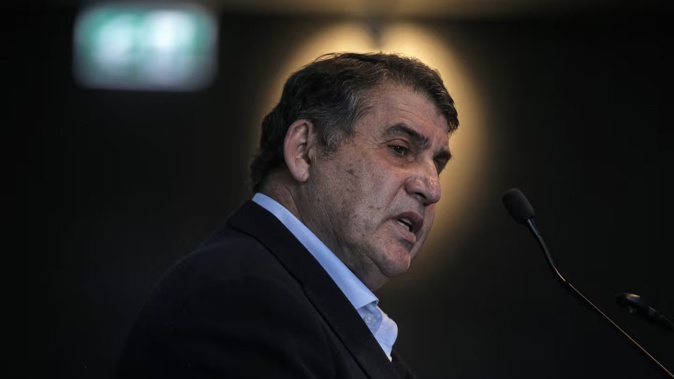
When the Health New Zealand – Te Whatu Ora board was abolished last month, it prompted a political debate about whether the health system was badly managed or underfunded. New analysis suggests it has never been given enough money – including for the year ahead.
Health NZ is unlikely to be able to find $1.4 billion in savings without cutting into frontline services, new analysis shows.
Newly appointed commissioner Dr Lester Levy has been tasked with cutting costs after the centralised health agency was found to be overspending by $130 million a month.
Levy has said this can be done without affecting the frontline, and that the health system’s problem is overspending, not underfunding.
His appointment in place of the Health NZ board led to a political debate over whether the overspending was caused by financial mismanagement or underfunding.
An editorial published in the New Zealand Medical Journal today said the cost overruns were unlikely to be solely caused by poor management.
The editorial, written by four researchers from the Association of Salaried Medical Specialists (ASMS), said the health system had been underfunded by successive governments and the health budget for the next financial year was again inadequate.
“We are paying the price now for that in terms of increasing waiting lists, longer waits for treatment and ageing facilities and equipment,” said ASMS acting director of policy and research Virginia Mills.
Mills said on the surface, the health system’s budget increase this year of $1.7b, or 6.2%, was significant. But $1.6b of that went to capital spending – including $1.3b for historical Holidays Act claims. The operational budget for the day-to-day running of the health system rose by $93m, or 0.4%.
New funding to meet cost pressures was not enough to maintain existing levels of services, she said. That meant more pressure on areas such as emergency departments and elective surgery waitlists.
The Government has set health targets for the sector in a bid to lift performance in these areas. However, the researchers noted these targets do not appear to have been funded.
There were also significant gaps between goals to grow the workforce and repair ageing infrastructure and the funding allocated to these areas.
While costs could be relieved by preventative measures or addressing drivers of poor health, several government policies had gone in the other direction, the editorial said. The researchers cited the reversal of smokefree laws, the removal of Treaty of Waitangi principles from Pharmac’s work, and the reintroduction of prescription co-payments.
The researchers said New Zealand’s investment in healthcare was low compared to other developed countries, and its productivity was relatively high. That meant it would be difficult to find significant savings within Health NZ.
“The commissioner has indicated confidence in finding $1.4b in savings from efficiencies,” the NZMJ editorial said.
“However, with relatively low investment and relatively high productivity, it is difficult to see how a further $1.4b of savings will be found without impacting frontline services.”
They concluded the Budget for the next financial year did not provide enough money to address the cost pressures of inflation, wage growth, ageing and population growth.
It also did not fund planned care backlogs stemming from the Covid-19 pandemic, increasing demand for acute care or the Government’s five health targets.
The editorial writers wanted an independent inquiry into how the health system was funded in New Zealand.
“This includes accounting for the true cost of health services – and the economic gains New Zealand would realise if health was viewed as an investment in our people.”
Isaac Davison is an Auckland-based reporter who covers health issues. He joined the Herald in 2008 and has previously covered the environment, politics and social issues.
Take your Radio, Podcasts and Music with you









